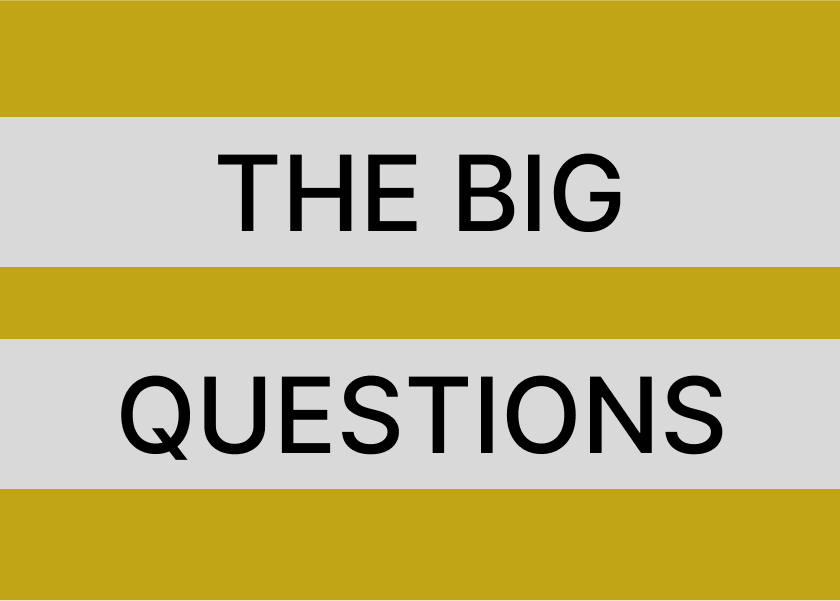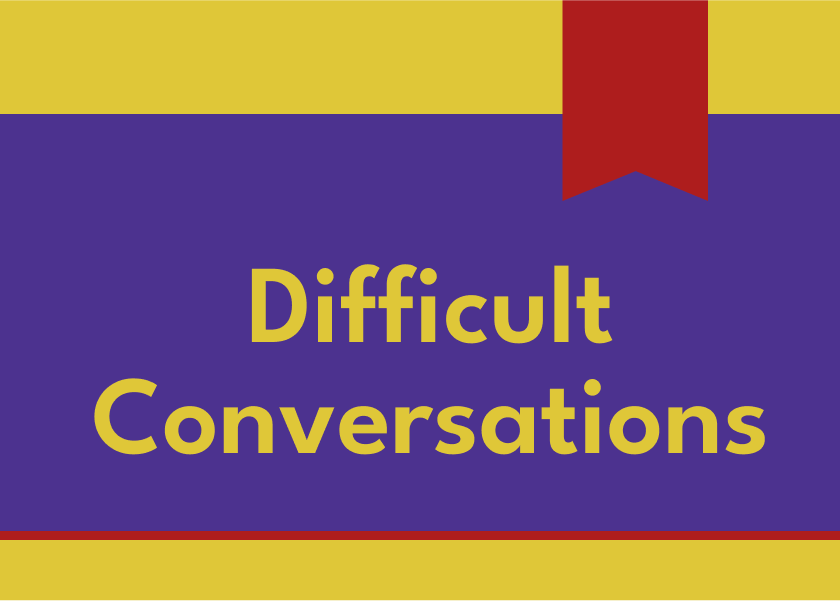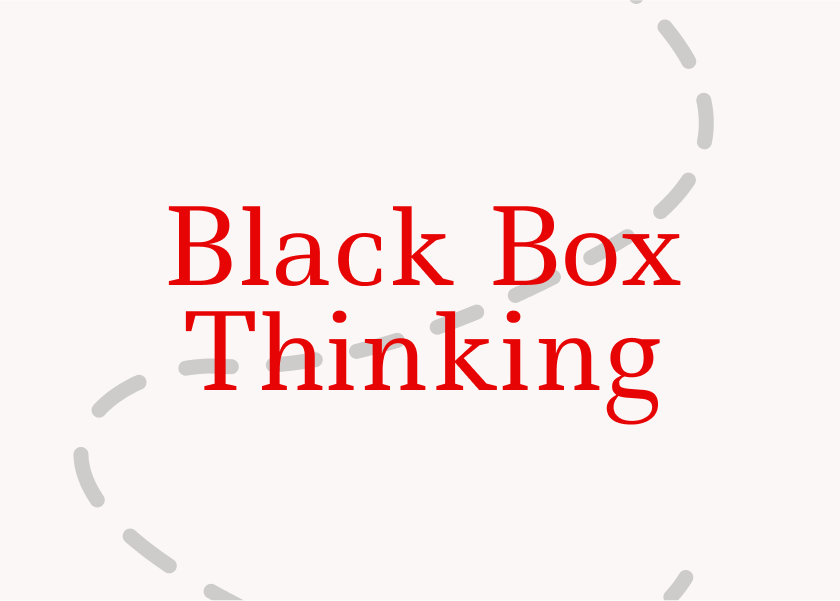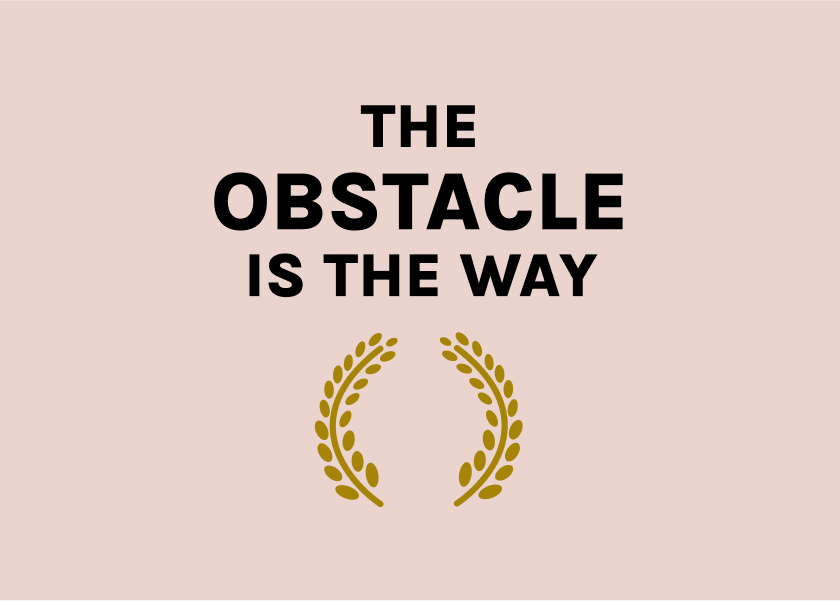The Big Questions by Lou Marinoff - Summary
Philosophy can help us with life’s biggest questions. Discover how it heals suffering, fosters flourishing, and empowers you to navigate challenges with reason. Transform your dis-ease into ease. Start your philosophical journey now!

The following is a summary and review of the book The Big Questions by Lou Marinoff.
Listen to ShelfHelp's podcast summarising The Big Questions by Lou Marinoff.
Finding Ease in a World of Dis-ease
Are you grappling with life's fundamental uncertainties? Do you ever wonder about what's right, the role of reason and passion, or how to navigate suffering? In a world increasingly focused on quick fixes and superficial solutions, the profound wisdom of philosophy offers a powerful and enduring path to understanding and navigating these very human challenges. Lou Marinoff's The Big Questions: How Philosophy Can Change Your Life steps into this arena, not as a dusty academic treatise, but as an accessible and practical guide to using philosophical insights to transform everyday struggles. This popular work, building on the success of Marinoff's earlier book, Plato, Not Prozac!, demystifies philosophy and empowers readers to become their own philosophical counsellors.
Table of Contents
- About the Author
- Who Should Read This Book?
- Key Insights and Themes
- Detailed Summary
- Review
- Actionable Takeaways
- FAQs
- Conclusion
About the Author
Lou Marinoff, Ph.D., is a professor of philosophy at the City College of New York and the founding president of the American Philosophical Practitioners Association (APPA). He is also the author of the international bestseller Plato, Not Prozac!: Applying Philosophy to Everyday Problems, which has been published in numerous languages and countries. Marinoff is a leading figure in the movement of philosophical practice, advocating for the application of philosophical principles to address the dis-eases of modern life. His work aims to bridge the gap between academic philosophy and the practical concerns of everyday living, making profound ideas accessible and beneficial to a wider audience.
Who Should Read This Book?
The Big Questions is for anyone who has ever pondered the fundamental aspects of human existence and sought deeper meaning and understanding in their lives. This includes individuals who are:
- Facing personal challenges or difficult transitions, such as relationship issues, career changes, or loss. The book offers philosophical frameworks for navigating these moments of truth.
- Feeling a sense of unease or dissatisfaction without a clear diagnosis of a medical or psychological condition. Marinoff distinguishes between "disease" and "dis-ease," suggesting philosophy can address the latter.
- Curious about the power of ideas and how different philosophical perspectives can illuminate various aspects of life.
- Seeking practical tools and exercises for self-reflection and personal growth. Each chapter ends with philosophical exercises designed to help readers apply the concepts discussed.
- Interested in exploring the relationship between philosophy, psychology, and psychiatry and understanding when each discipline might be most helpful.
- Looking to develop a personal "philosophy of life" to guide their decisions and actions.
Essentially, if you are someone who dares to question and seeks a more thoughtful and meaningful engagement with the complexities of life, this book offers valuable guidance and insights.
Key Insights and Themes
Here are some of the key takeaways and main ideas explored in The Big Questions:
- Philosophy as a Healing Art: Marinoff echoes Hobbes in asserting that philosophy, like medicine, should heal the suffering of the mind. It offers a path from "dis-ease" to "ease".
- The Power of Inquiry: Questioning is fundamental to understanding ourselves and the world around us. The ability to inquire is our primary means of making sense of things.
- Advanced Common Sense: Philosophical counselling can be seen as an advanced form of common sense, applying useful ideas to concrete problems of living.
- Dis-ease vs. Disease: The book differentiates between genuine medical or psychological "diseases" and the general "dis-ease" arising from life's challenges, suggesting philosophy is particularly relevant for the latter.
- Reason and Passion: The interplay between reason and passion is a central theme, exploring how to bring these forces into a more peaceful coexistence. The concept of Buddha's Ten Worlds offers a nuanced perspective on these states of mind.
- The Significance of Beliefs: Our belief systems profoundly influence how we experience ease, dis-ease, or disease. Examining and potentially modifying our beliefs can lead to personal change.
- Understanding Suffering: Suffering is presented as an optional element in the face of inevitable pain. The book explores different ways of dealing with suffering and the possibility of transforming it.
- The Illusion of External Happiness: True contentment comes from within, not from merely changing external circumstances. Attachment to specific outcomes can be a source of suffering.
- Navigating Relationships: The book touches on various aspects of human relationships, including love, conflict resolution, and the complexities of marriage.
- Technology and Humanity: The increasing dominance of machines in our lives and its potential impact on our humanity is explored. The book considers both the dehumanising and rehumanising potential of technology.
- The Spiritual Dimension: The book delves into the realm of spirituality, differentiating it from organised religion and exploring various mystical traditions as paths to inner ease.
- Building a Philosophy of Life: Part III of the book focuses on providing advice and a practical method (MEANS) for constructing one's own guiding philosophy.
Detailed Summary
The Big Questions is structured in four parts, with the main body of philosophical exploration occurring in Parts I and II.
Part I: Disease or Dis-ease?
This introductory section lays the groundwork for the book's central premise: philosophy can help with the "dis-eases" of life. Marinoff distinguishes between medical and psychological "diseases" that may require professional treatment and the more general suffering or "dis-ease" that arises from navigating life's complexities. He argues that the increasing tendency to pathologise normal human concerns can lead to unnecessary reliance on medication. Instead, he proposes that a well-articulated philosophy of life provides a more sustainable way to cope with these challenges. The chapter introduces the concept of philosophical counselling as a means to address these "Big Questions".
Part II: The Big Questions
This forms the core of the book, with each chapter dedicated to exploring a significant philosophical question relevant to everyday life.
- How Do You Know What’s Right? This chapter likely delves into ethical theories and moral decision-making. It might explore different frameworks for determining right and wrong, prompting readers to examine their own moral compass.
- Are You Guided by Reason or Passion? This explores the age-old conflict between intellect and emotion. Through cases like Alex and the concept of the Ten Worlds, the chapter likely examines how to achieve a balance between rational thought and emotional drives, suggesting that ideally, passion fuels the engine while reason steers.
- If You’re Offended, Are You Harmed? This tackles the distinction between feeling offended and experiencing genuine harm. Cases like Alicia and George highlight how perceived slights can cause "dis-ease," while examples like Jackie Mason illustrate the possibility of absorbing offense without internalising harm.
- Must You Suffer? This chapter challenges the inevitability of suffering, differentiating it from pain. Through various case studies like Ruth, Philip, Stephanie, and Marina, it explores different responses to suffering, including keeping it to oneself, escaping it, passing it on, ending it, and transforming it. Barry's revisited case illustrates the transformative power of agape.
- What Is Love? This delves into the complexities of love, potentially exploring different forms such as erotic love, familial love (philia), and unconditional love (agape). Cases like Karen likely examine the challenges and expectations surrounding love and relationships.
- Can’t We All Just Get Along? This addresses the difficulties in human interaction and the sources of conflict. Cases like Jane and Sonya might explore strategies for fostering understanding, tolerance, and peaceful coexistence, even amidst differences. The limitations of a purely vision-based understanding of others are also discussed.
- Can Anybody Win “the War of the Sexes”? This chapter likely examines the dynamics and conflicts that can arise between men and women. While no specific case is mentioned in the excerpts, it would likely explore philosophical perspectives on gender roles, communication, and expectations in relationships.
- Who’s in Charge Here: We, or the Machines? This explores the increasing integration of technology into our lives and its impact on our humanity. Cases like Cindy and Raphael illustrate both the potential for technology to dehumanise and to rehumanise, depending on how it is used. The importance of individual commitment and meaning in life amidst technological advancement is also touched upon.
- Are You a Spiritual Being? This chapter delves into the realm of spirituality, differentiating it from organised religion. It explores various esoteric and mystical traditions and includes cases like Richard Bucke and Ben who experienced spiritual awakenings or sought a spiritual path to navigate life's challenges. The concept of "élan vital" (vital spirit) is introduced.
- How Can You Handle Change? This addresses the inevitability of change and how philosophy can provide frameworks for adapting and coping with it. Lisa's case of winning the lottery and Martha's use of the I Ching illustrate unexpected life changes and philosophical tools for navigating them. Jim's battle with cancer exemplifies confronting profound personal change.
Part III: Building Your Philosophical House
This section offers practical advice on developing a personal philosophy of life. It introduces the MEANS method as a framework for philosophical self-examination. The acronym stands for:
- Moments of truth: Recognising and reflecting on significant life events that have shaped your understanding.
- Expectations: Examining and adjusting your expectations to avoid unnecessary disappointment and negative emotions.
- Attachments: Understanding and potentially diminishing attachments to external things and outcomes that can lead to suffering.
- Negative emotions: Analysing the root causes of negative emotions and exploring ways to transform them.
- Sagacious choices: Making wise decisions guided by your values and philosophical understanding.
The chapter includes exercises to help readers implement each aspect of the MEANS method and build their own "philosophical house".
Part IV: Additional Resources
This part includes appendices such as a "Hit Parade of Ideas" featuring summaries of ninety-nine influential thinkers in philosophical counselling, a directory of organisations for philosophical practice, a directory of APPA-certified philosophical practitioners, and suggestions for further reading.
Review
The Big Questions offers a compelling and accessible introduction to the power of philosophy in addressing the everyday challenges of life. Marinoff successfully demystifies complex philosophical ideas, presenting them in a clear and engaging manner through relatable case studies and practical exercises. The book's strength lies in its emphasis on the practical application of philosophical wisdom, empowering readers to become active participants in shaping their own well-being. The "Hit Parade of Ideas" in the appendix serves as a valuable resource, introducing readers to a wide range of philosophical thinkers and concepts that they can explore further.
However, the sheer breadth of topics covered might be seen as a potential weakness. While the book touches upon numerous The Big Questions, the depth of analysis for each is necessarily limited. Readers seeking a more in-depth exploration of specific philosophical areas might need to supplement their reading with more focused texts. Additionally, while the case studies are illustrative, some readers might desire more detailed accounts and follow-ups.
Overall, The Big Questions is a valuable resource for those new to philosophy or seeking practical ways to integrate philosophical thinking into their lives. It serves as an excellent starting point for a journey of self-discovery and philosophical inquiry.
Actionable Takeaways
Here’s how to apply these lessons in real life:
- Embrace Questioning: Cultivate a habit of questioning your assumptions, beliefs, and the situations you face. Don't be afraid to ask "foolish questions".
- Distinguish Dis-ease from Disease: Reflect on whether your suffering stems from a diagnosable condition or the general challenges of life. Consider philosophical approaches for the latter.
- Examine Your Beliefs: Identify beliefs that might be causing you "dis-ease". Explore alternative perspectives and consider whether modifying your beliefs could alleviate suffering.
- Find Balance Between Reason and Passion: Pay attention to the interplay of your intellect and emotions. Strive to channel your passions constructively using reason as a guide. Consider the Ten Worlds as a framework for understanding your mental states.
- Manage Expectations and Attachments: Reflect on your expectations in various areas of life and the attachments that might be leading to disappointment or suffering. Explore ways to diminish unhealthy attachments.
- Learn from Suffering: When facing suffering, try to understand its true causes rather than simply trying to escape it. Consider how suffering might offer valuable lessons.
- Cultivate Agape: In your interactions, strive for a transcendent love that encompasses goodwill and a refusal to hate or retaliate, as exemplified in Barry's revisited case.
- Be Mindful of Technology's Impact: Reflect on how technology is influencing your life and whether it is enhancing or detracting from your human connection and well-being.
- Explore Spirituality: Consider your own spiritual dimension beyond organised religion. Investigate different mystical traditions that resonate with you.
- Engage with the MEANS Method: Apply the Moments of truth, Expectations, Attachments, Negative emotions, and Sagacious choices framework to examine your own life and build a more conscious philosophy.
- Explore Philosophical Resources: Delve into the "Hit Parade of Ideas" and "Further Reading" sections to discover philosophers and works that align with your interests.
FAQs
- What are the "Big Questions" the book refers to? The "Big Questions" are fundamental inquiries about ourselves, others, the world, and the meaning of existence. The book addresses specific questions such as "How Do You Know What’s Right?" and "Must You Suffer?".
- How does philosophical counselling differ from traditional therapy (psychology/psychiatry)? Philosophical counselling focuses on addressing "dis-ease" related to meaning, purpose, and values through philosophical inquiry and reflection. Psychiatry and psychology often deal with diagnosed mental illnesses and may employ different therapeutic techniques. The book suggests that the most appropriate helper depends on the specific issue.
- Is "The Big Questions" a self-help book? While it offers practical guidance and exercises for personal growth, "The Big Questions" goes beyond typical self-help by grounding its advice in established philosophical traditions and encouraging deeper intellectual engagement with life's fundamental questions.
- Does the book offer definitive answers to the "Big Questions"? No, the book does not aim to provide definitive answers. Instead, it equips readers with philosophical frameworks and tools to explore these questions for themselves and develop their own informed perspectives.
- Is prior knowledge of philosophy required to understand this book? No, the book is written in an accessible style for a general audience with no prior philosophical background. It demystifies complex ideas and explains them clearly through examples and case studies.
Conclusion
Lou Marinoff's The Big Questions: How Philosophy Can Change Your Life serves as a powerful reminder that the wisdom of the ages remains profoundly relevant in navigating the complexities of modern existence. By offering practical tools and insightful perspectives on life's fundamental challenges, the book empowers readers to move beyond superficial solutions and cultivate a deeper understanding of themselves and the world around them. Embracing philosophical inquiry is not about escaping reality, but about engaging with it more thoughtfully and ultimately finding greater ease amidst the inevitable "dis-eases" of life. We encourage you to delve into this enriching work and embark on your own journey of philosophical self-discovery.
As an Amazon Associate, ShelfHelp may earn money from qualifying purchases. Needless to say, ShelfHelp only includes affiliate links to books we recommend and think are worth your time reading.




